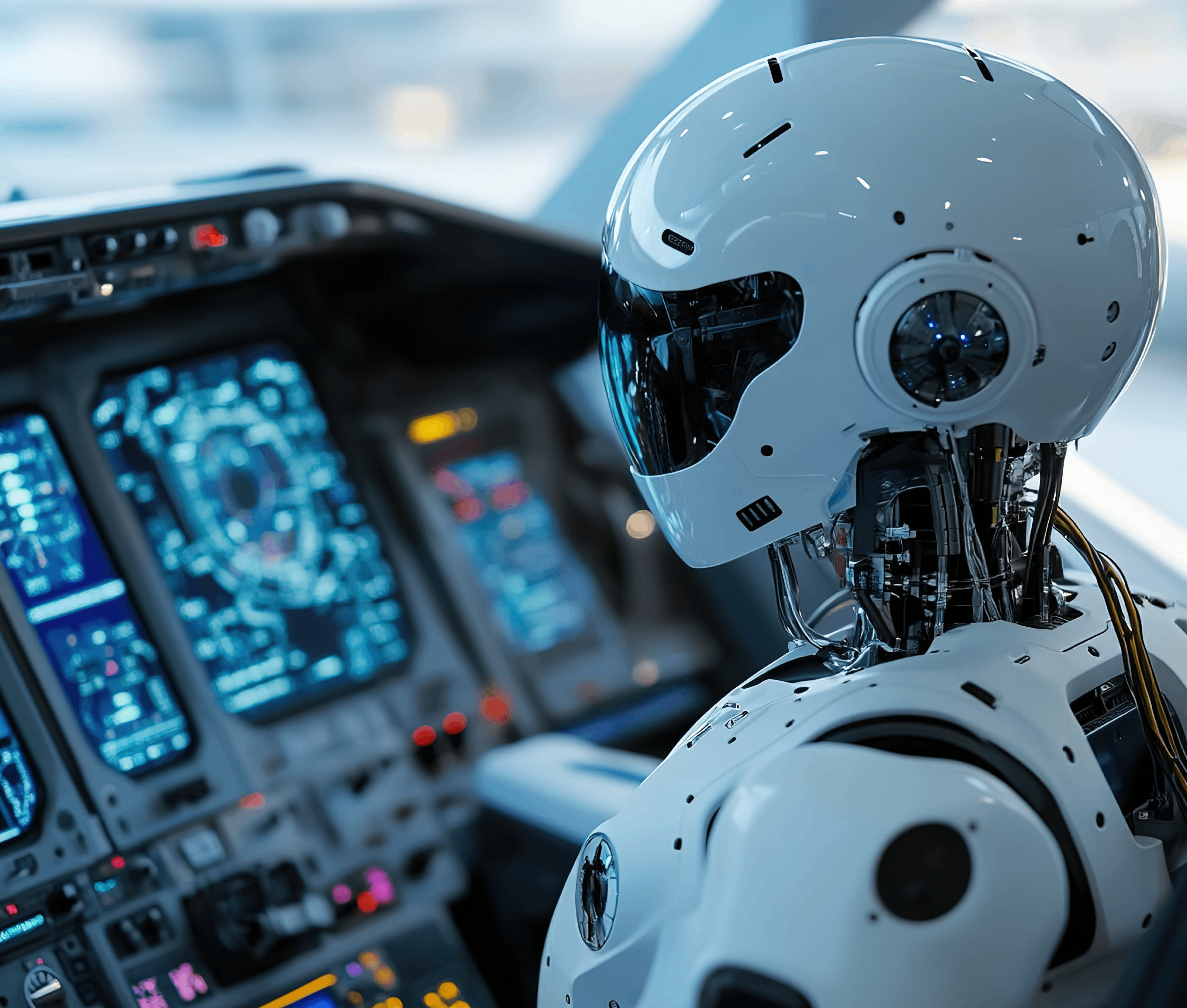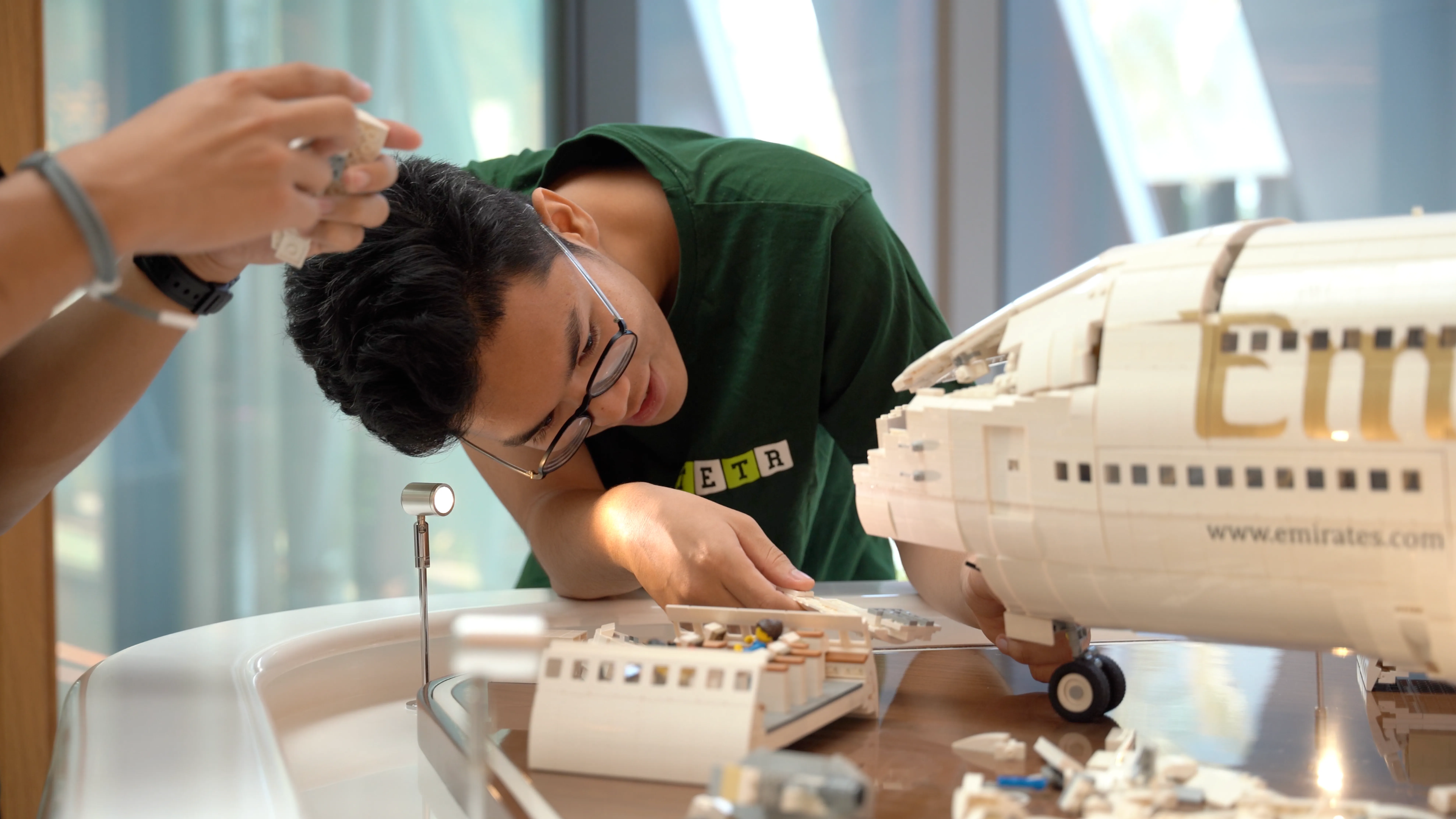Round 1 Deadline: 16th Feb 2026
Apply Now





Table of Contents
Tetr students explored the Emirates' Ebdaa hub, where aviation robotics and AI-powered check-in systems are enhancing efficiency and passenger experience while also training staff using generative AI.
Emirates, the world's largest international airline, is globally renowned for its exceptional services and commitment to innovation in aviation technology. Ebdaa, the company's innovation hub in Expo City, Dubai, represents a significant stride in aviation technology. 'Ebdaa', named after the Arabic word for creativity, aims to promote progress and development in the aviation industry. It is equipped with an aerospace aviation robotics laboratory, where the development of social and industrial robots take place. The ambition at Edbaa is to leverage AI in aviation to improve operational efficiency, reduce costs and elevate the flying experience.
The spacious innovation center, designed to represent the wings of an aircraft mid-flight, was constructed using advanced fabrication and modern building techniques. Moreover, the structure seamlessly incorporates sustainability in its design, such as integrated solar arrays, responsive solar shading and solutions for eco-efficient construction and responsible consumption. The prioritization of sustainability in this innovation hub reflects a promising step toward integrating environmentally responsible practices into cutting-edge aviation technology development.
The students at Tetr kicked off their semester at the Emirates Ebdaa Immersion at Expo City Dubai, where they gained insights into how Emirates is pioneering advancements in aviation technology. At the Aviation X labs, the students immersed themselves into the world of aviation technology, and engaged with the prestigious legacy of Emirates, and the advancements being made in aviation robotics and AI in aviation.
The students also had the unique opportunity to witness how advancements in AI in aviation are transforming the customer experience in the aviation industry. Through the observations of some rather unconventional customer service agents, specifically the incredible customer support robots and AI check-in systems at Emirates, the students gained a comprehensive understanding of what cutting edge aviation technology truly looks like.

The Edbaa innovation hub also offers a variety of virtual cabin experiences, which are primarily used for generative AI training purposes and customer engagement. Their extended reality (XR) theatre offers an immersive environment such as a virtualized cabin, where crew members undergo generative AI training on various operational tasks. The integration of this aviation technology in operational procedures ensures the skills learned are transferable to their actual work environment without enduring the hassles of conducting training in uncontrolled environments. The students immersed themselves into the XR theatre, gaining a deeper understanding of how interactive aviation technology can enhance business operations and drive innovation.
At the aviation robotics cafe, the students enjoyed refreshments while experiencing the integration of robotics in the hospitality industry. Over here, they interacted with representatives from X Labs Accelerator, and gained insights into the revolution of aviation through AI in aviation.
With its emphasis on aviation robotics, AI in aviation, and Web 3.0, the Ebdaa innovation hub is redefining the aviation industry as we know it. These innovations not only enhance operational efficiency but also elevate the passenger experience, positioning Emirates at the forefront of industry progress. Through sustainable development practices, aviation robotics integration and extended reality, it is certain that Emirates is making the most of advancements in AI check-in systems and generative AI training to reshape the future of airline experiences.
1. How is Emirates using aviation technology to transform the passenger experience?
Emirates is leveraging aviation technology through their Ebdaa innovation hub to create more efficient and enjoyable passenger experiences. Their implementation of AI check-in systems and customer support robots streamlines the pre-flight process, while their focus on aviation robotics in hospitality settings demonstrates their commitment to technological advancement throughout the entire customer journey.
2. What role does AI in aviation play at Emirates' Ebdaa innovation hub?
AI in aviation is central to Emirates' innovation strategy at Ebdaa. The hub focuses on developing artificial intelligence applications that improve operational efficiency, reduce costs, and enhance the overall flying experience. From AI check-in systems to customer service robots, Emirates is integrating AI in aviation across multiple touchpoints to revolutionize air travel.
3. How does Emirates train its staff using generative AI?
Emirates utilizes generative AI training through their extended reality (XR) theatre at the Ebdaa hub. This immersive environment creates virtualized cabin scenarios where crew members can practice operational tasks in a controlled setting. The generative AI training ensures skills are transferable to real-world situations while avoiding the challenges of training in uncontrolled environments.
4. What types of aviation robotics is Emirates developing?
Emirates is developing both social and industrial aviation robotics at their aerospace laboratory in the Ebdaa innovation hub. These include customer support robots that transform the passenger experience and aviation robotics integrated into hospitality settings like their robotics cafe. These aviation robotics innovations aim to improve service delivery while increasing operational efficiency.
5. How is Emirates incorporating sustainability into their aviation technology development?
While advancing aviation technology, Emirates has prioritized sustainability in the design of their Ebdaa innovation hub. The facility incorporates integrated solar arrays, responsive solar shading, and solutions for eco-efficient construction. This approach demonstrates how cutting-edge aviation technology can be developed alongside environmentally responsible practices, setting a standard for sustainable innovation in the industry.